Why the disappearance of First Class is down to bad marketing, not lack of demand (Part 1)
Links on Head for Points may support the site by paying a commission. See here for all partner links.
This is a two-part guest post by Oliver Ranson, who runs the fascinating Airline Revenue Economics blog on Substack (free to subscribe, click ‘Let me read it first’ to skip the sign-up page).
He published this article a few weeks ago and we thought it was worth sharing. You can read Oliver’s previous HfP article, “How we built the first business case for the award-winning Qatar Airways Qsuite“, here.
You can sign up to receive Oliver’s future articles by email here. There is no charge. Over to him …..
Back in the 80s and 90s British Airways ads used to joke that it was too expensive for your business to NOT fly First Class. Like many jokes it contained a grain of truth – flying First, arriving refreshed, sealing the deal and leaving a happy customer sounds much better than losing a client because you are tired and not at your best.
But these days business class offers flat beds and plenty of space to sleep, work or relax. At the same time, the number of First Class seats offered and sold has clearly fallen – airlines like Air France and China Southern only use one row.
Even BA, along with Emirates the world’s largest first operator, cut the number of plush seats from 14 (three to five rows) to eight (two rows) when they installed Club Suite, a business product with doors, on their 777s.
Qatar Airways, who advertise excellent service, have all but abandoned First and offer the Qsuite business class (which I helped develop) instead. Singapore Airlines, another carrier renowned for service, experimented with cabin-like seats on their A380s (see my Subtack article here) but also have a more traditional product on their 777s.
Many industry commentators say that business is now so good that passengers no longer want or need the perks of First. I disagree.
Looking under the hood, I think that what is really going on is that airlines have forgotten how to sell First Class and make the classic mistake of promoting features rather than benefits. Read on to find out why .…
Why is the revenue contribution of First Class important?
When airlines design the best possible LOPA (LOPA = Layout of Passenger Area, ie the seat map) they start with maximum possible density and only deviate when there is a strong revenue case to do so. This means the base case is all-economy, as few loos and cabin attendant seats as practical, and small galleys.
When it comes to First Class though, it is easy to forget the part about looking for strong revenue cases because both capex and opex are high.
First Class suites are heavy – they weigh 100kg or more against 9kg for a typical economy seat and 6kg for the lightest. This means that First Class operators suffer high penalties in respect of fuel burn. The extra weight also constrains the aircraft’s payload-range, which determines how far the aircraft can fly with different passenger complements. Some desirable long-range destinations may be out of scope with suites at the front.
Complex maintenance also has tough implications for opex. The seat’s electric actuators, which generate motion on command, can break. Plush trim and finish like leather and chrome might damage easily and need replacing.
Compounding the matter is high capex – one seat can cost $100,000 or more.
Airlines are often so cost-focused that some meetings between planners and their suppliers might need to be carefully managed to even consider the revenue side. In a busy office with many competing projects it is easy to imagine how other less difficult tasks might take priority.
Even if planners do look at revenue there is a risk of underestimating how much First Class can really contribute if the pricing department do not understand or are unsure about how to monetise the willingness of passengers to pay.
What is First Class in today’s market? It is a time machine
Everything you can see in this seat map I have outlined in this handy table, which shows how First Class features are different from those in business and explains how they benefit a passenger.
While business offers a comfortable journey, First offers a luxurious experience where the passenger has a higher degree of control over how they spend time on the flight. When the flight is over, many passengers travelling in First will have enjoyed a few hours extra productivity or leisure activities than they would have done if they had flown in business. In this sense, First Class is a time machine.
The macroeconomic environment for First Class travel is excellent
Billionaires might fly private and people employed by billionaires might fly in comfy business. First Class is a service for millionaires.
Fortunately for First Class operators the number of millionaires is now greater than ever before, with significant increases across each region of the world. Check out the chart from The Economist below, which shows among other things that in China there were hardly any millionaires 20 years ago but now there are more than four million. Due to economic growth, fundamental First Class demand – based on ability to pay – is only likely to increase over time.
We know from other industries that wealthy people spend what they have to when they see value. Luxury hotels and expensive restaurants thrive, shiny Apple gadgets fly off the shelves and neither Gucci shoes nor handbags fail to find customers.
The traditional market for First is not just limited to the wealthy. Companies should also be buyers. The issue is that, in Europe and the Americas, many businesses state that they do not see value in First Class and are concerned that the optics of executives flying in lavish conditions are unfavourable. That does not necessarily mean that they are no longer a market – but it does mean that the airlines are not convincing them to buy.
Meanwhile in Asia and other emerging markets it is still socially acceptable to flaunt status-symbols and First Class travel may be the ultimate example of conspicuous consumption. While university researchers in the west often fly economy due to budget constraints, top Chinese scientists are shuttled around the world in First.
It is no co-incidence that most of the world’s First Class operators are in Asia, which I have shown in the table below along with some airlines who I think would be good candidates for First Class.
We have split this article due to length. Click here to read Part 2. Thank you.



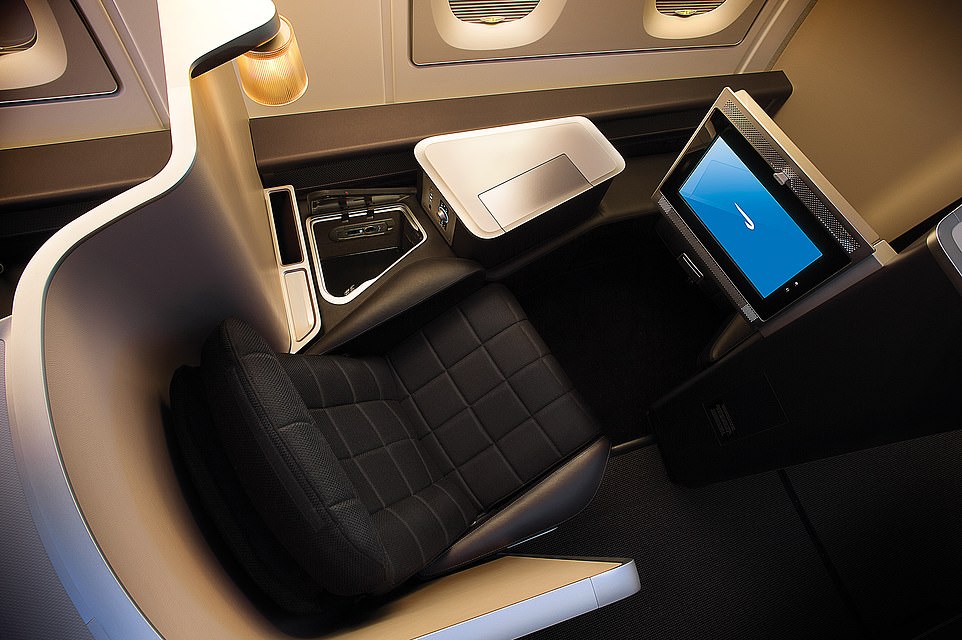
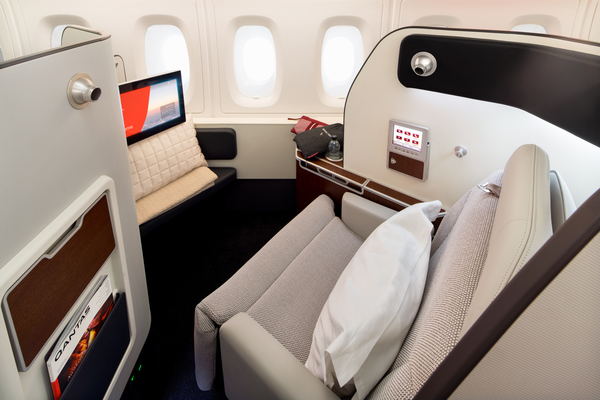
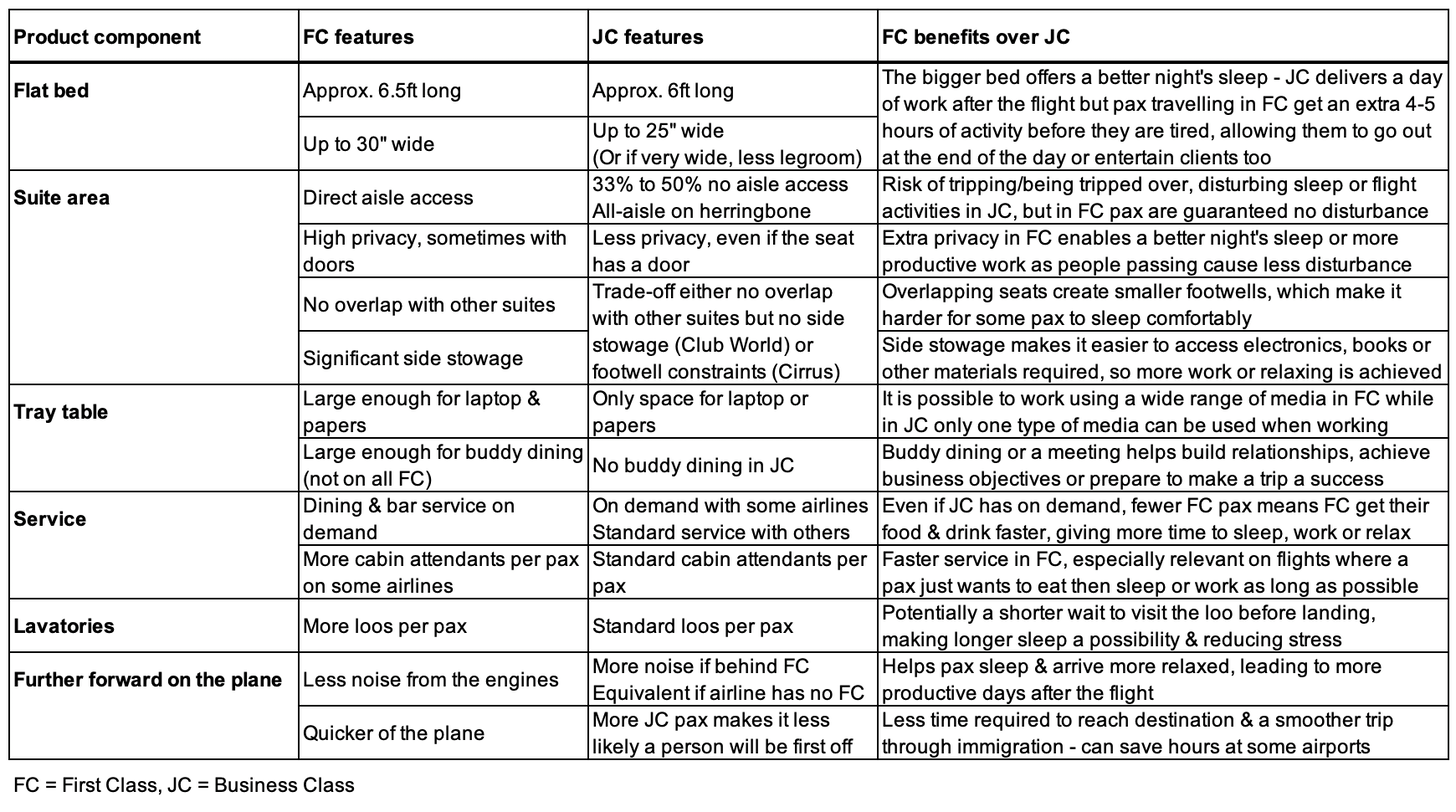
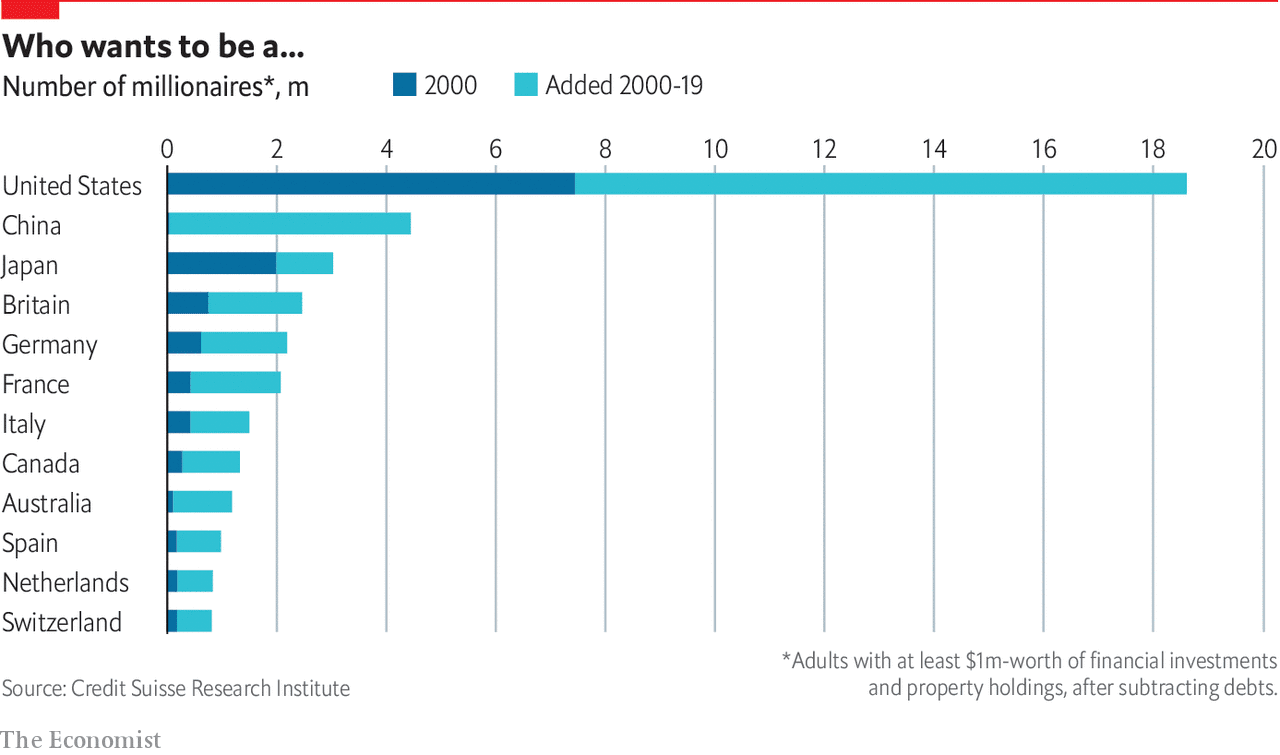
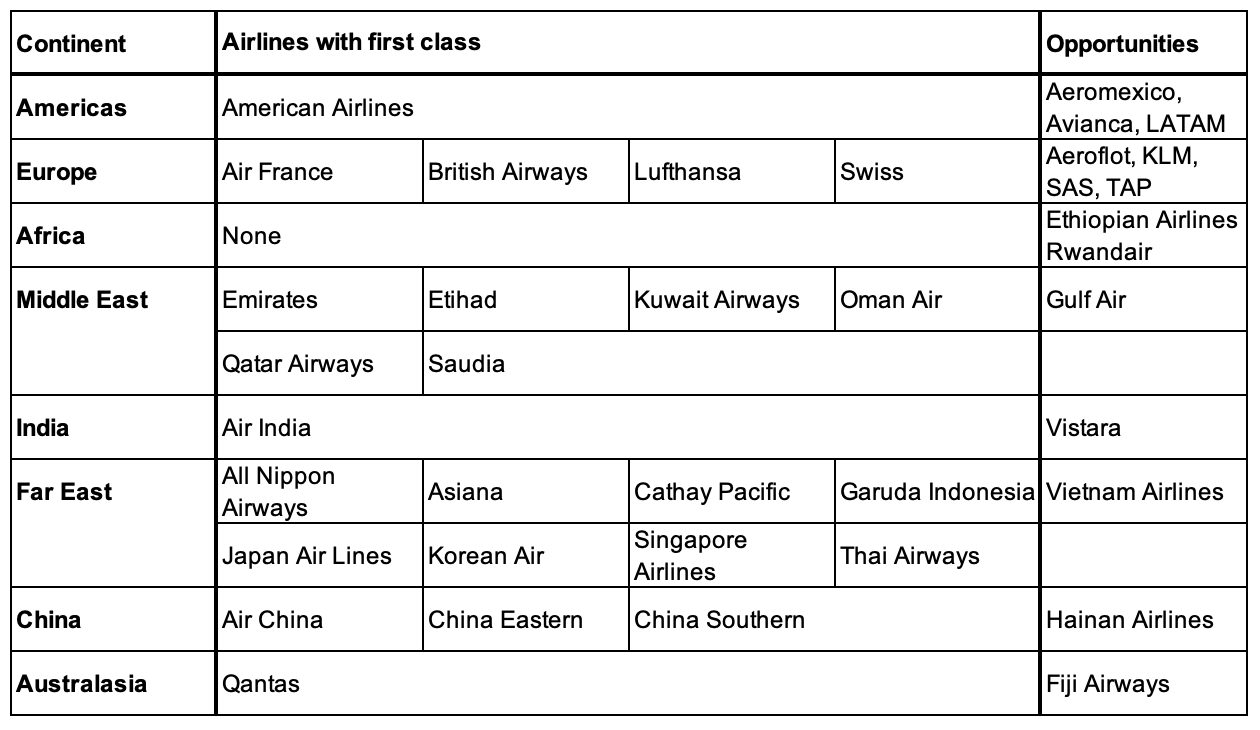






Comments (76)